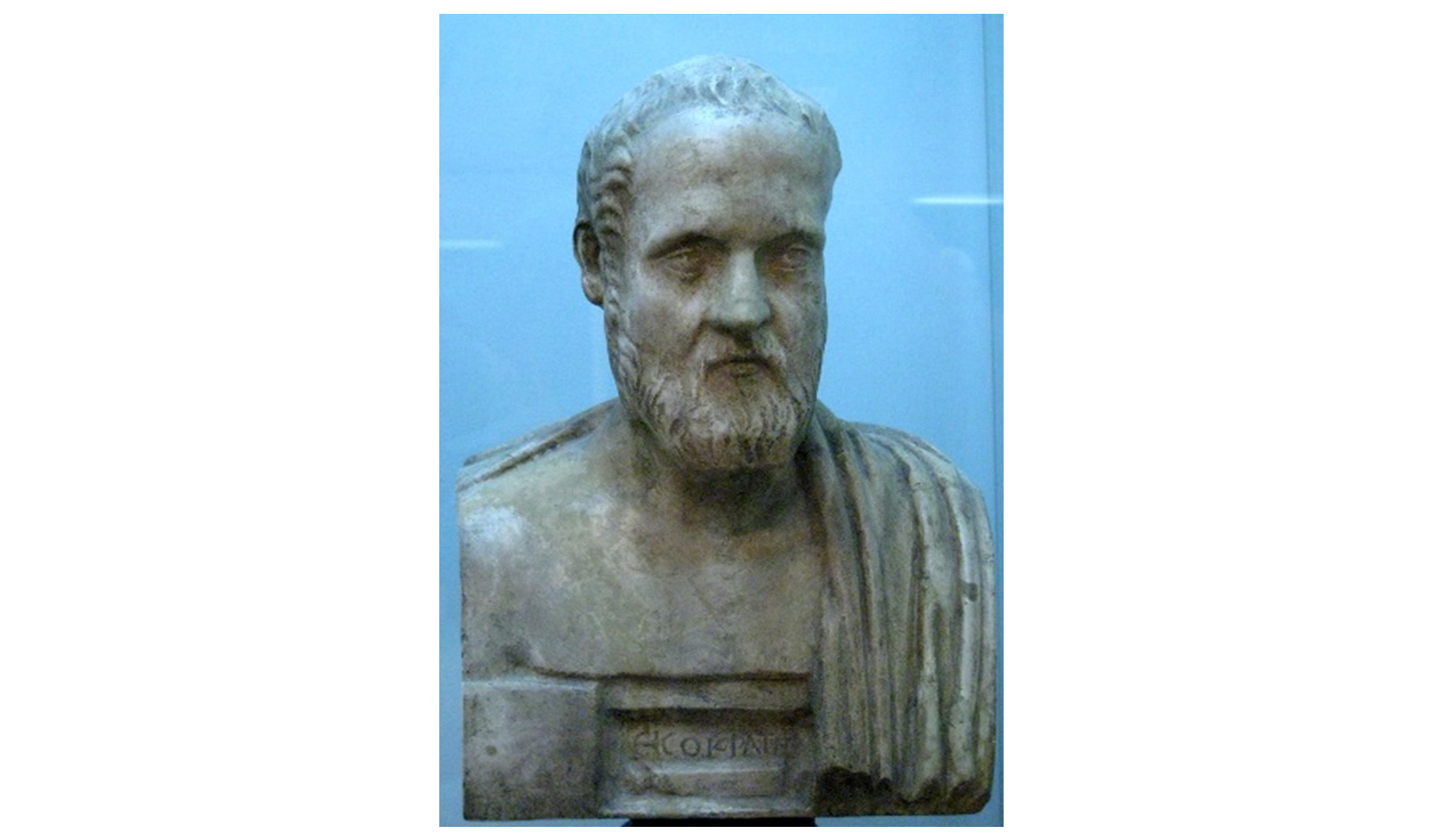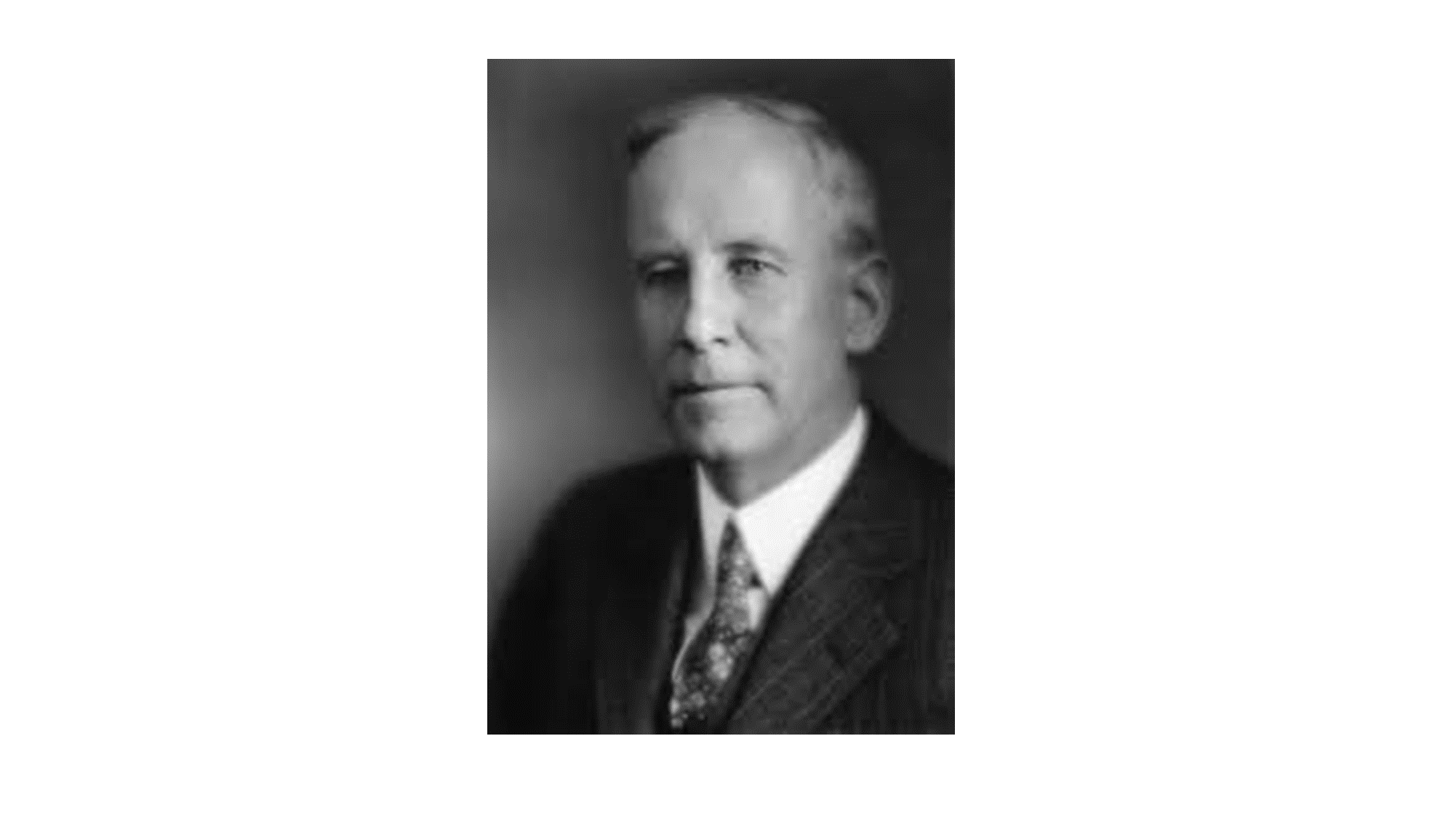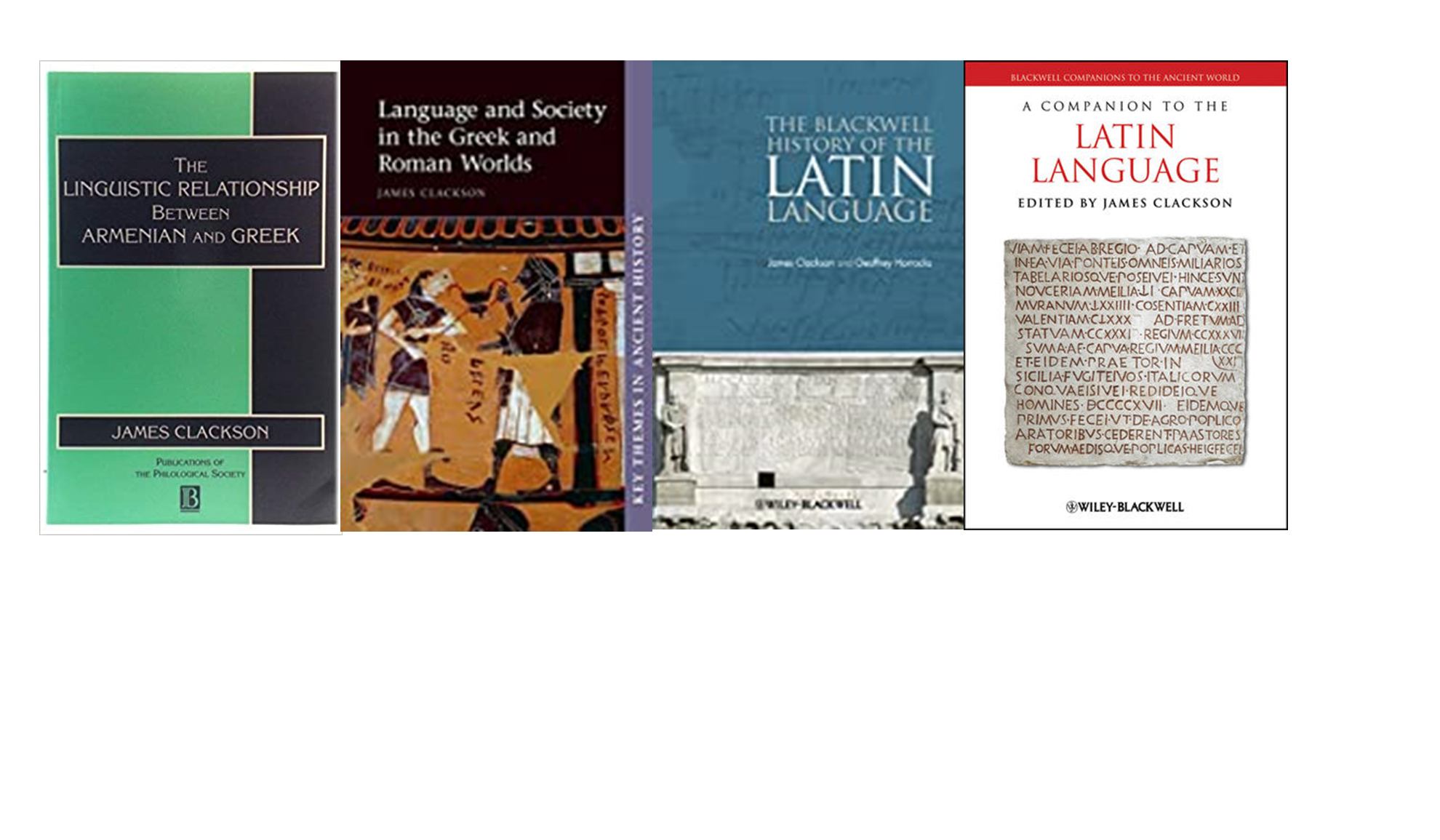James Clackson looks at teaching Greek and Latin and its unexpected benefits.
How do you talk about Classical languages to those who do not know a word of Latin and Greek? I am not alone in having spent much of my life trying to answer that question. I was fortunate in my own introduction to the classics. I learnt Latin at Loughborough Grammar School from the age of 11, and then took up Greek at the age of 13. I had the luxury of taking A-level Latin in a class of three, and being the only student for A-level Greek classes. I remember my delight when my first Latin teacher explained that tandem meant ‘at length’ by drawing a tandem bicycle on the board, and my excitement at learning the Greek alphabet, but I can’t remember what it was like not to know Latin. My training and research in historical linguistics have given me an armoury of technical terms at my disposal to describe different languages. I can consequently tell you that Latin is a highly inflected language of the Italic branch of Indo-European family, with a voicing distinction in obstruents, a quantitative vowel distinction, stress accent, elaborate subordinate syntax and word-order largely driven by pragmatic, rather than syntactic factors. That’s not much help if you haven’t studied any linguistics, and even if you have hardly an invitation to get better acquainted with the language.
I was confronted with the question of how to talk about Latin and Greek in a new course of lectures I gave for the first time this year in Cambridge. In a departure from previous practice, these lectures are aimed at all freshers in Classics, both those who had studied Latin to A-level (taking our three-year course) and those with limited or no experience of Latin (on the four-year course). My brief was to introduce the hundred or so students to the study of language and linguistics as it relates to Greek and Latin. At the end of the term, they decide whether linguistics is one of the two options they would like to continue, or whether to follow other subjects such as classical philosophy or the art and archaeology of the ancient world. Consequently, these lectures have to serve both as an introduction and an advertisement for some of the range of topics we cover in the course.
I decided that my starting point should be to show the students a chunk of Latin or Greek so that they could see what the languages look like, even if they couldn’t understand or even read the letters. I chose a Greek text which discussed the power and importance of language, an excerpt from Isocrates’ so-called “Hymn to Logos”.
Isocrates (wikipedia)
This is a section at the beginning of Isocrates’ third Discourse, which is written as if it were spoken by Nicocles, King of Salamis. In the discourse, the king maintains, without any trace of embarrassment, that monarchy is the best possible form of government because the best person is in charge. The piece opens with a stirring defence of eloquence and rhetoric, arguing that it is logos which sets us apart from beasts and which has enabled human material and technological progress. Logos of course comprises a much larger semantic range than any single English word, covering not just spoken utterances, from words to speeches, prose and narrative, but also the ideas of argumentation and calculation. I reproduce here the Greek selection I used and the English translation from the Loeb edition:
τοῖς μὲν γὰρ ἄλλοις οἷς ἔχομεν οὐδὲν τῶν ἄλλων ζῴων διαφέρομεν, ἀλλὰ πολλῶν καὶ τῷ τάχει καὶ τῇ ῥώμῃ καὶ ταῖς ἄλλαις εὐπορίαις καταδεέστεροι τυγχάνομεν ὄντες· ἐγγενομένου δ᾿ ἡμῖν τοῦ πείθειν ἀλλήλους καὶ δηλοῦν πρὸς ἡμᾶς αὐτοὺς περὶ ὧν ἂν βουληθῶμεν, οὐ μόνον τοῦ θηριωδῶς ζῆν ἀπηλλάγημεν, ἀλλὰ καὶ συνελθόντες πόλεις ᾠκίσαμεν καὶ νόμους ἐθέμεθα καὶ τέχνας εὕρομεν, καὶ σχεδὸν ἅπαντα τὰ δι᾿ ἡμῶν μεμηχανημένα λόγος ἡμῖν ἐστιν ὁ συγκατασκευάσας.
Isocrates Nicocles 3, 5-6.
For in the other powers which we possess we are in no respect superior to other living creatures; nay, we are inferior to many in swiftness and in strength and in other resources; but, because there has been implanted in us the power to persuade each other and to make clear to each other whatever we desire, not only have we escaped the life of wild beasts, but we have come together and founded cities and made laws and invented arts; and, generally speaking, there is no institution devised by man which the power of speech has not helped us to establish.
Translation by George Norlin
In order to highlight the different ways in which Greek and English work as languages, and to make it visible to those who could not read Greek, I set the two passages alongside each other on a powerpoint slide, colouring in the words which were in Greek but not translated in English. I also counted the words and characters used in each passage: English uses roughly 50% more words, but the average word length is shorter than the Greek. Even though the Greek text employs the definite article more frequently than English, fewer words are used in Greek. Inflected forms such as the verbs ἔχομεν, διαφέρομεν and τυγχάνομεν cannot be translated by a single word, and grammatical constructions such as the genitive absolute with an articular infinitive, ἐγγενομένου δ᾿ ἡμῖν τοῦ πείθειν, require a fair amount of circumlocution in the English version.
Looking at places where the English translation added or changed the meaning of Isocrates’ text was even more illuminating, and in a way I hadn’t expected when I selected this passage. The English version of the final clause in the passage introduces the word ‘man’, where the Greek has ‘us’. George Norlin, writing in 1928, doubtless used ‘man’ to refer to humans, as was the standard idiom in his day, in order to avoid the repetition of ‘us’ twice in close succession. I think it very unlikely that a Loeb translation would be published nowadays which used ‘man’ to do duty for men and women; publishers and copy-editors are rightly careful nowadays to vet manuscripts for any language which could be considered sexist or exclusionary. At Cambridge, students of all genders are similarly quick to call out any perceived male bias. It was nice to be able to draw their attention to what might have been seen as an example of the casual assumption of the feminine under the masculine, was not present at this point of the original Greek.
Of course, it has to be pointed out that the ‘we’ of the rest of the passage is overtly marked in Greek as masculine through adjectives and participles in agreement, as in the phrase καταδεέστεροι τυγχάνομεν ὄντες ‘we are inferior’. There is, however, an important difference between the masculine bias in the original and translation. In English it is possible to replace ‘man’ by ‘human’ or another word, and to leave the passage entirely gender-neutral. In Greek, on the other hand, there is no option but to mark adjectives referring to humans as masculine or feminine, with the default assumption that the masculine does double duty for both genders. The ancient Greeks had not reached the sophistication of speakers of modern European languages, who have devised gender-neutral forms when confronted by this masculine/feminine dichotomy (thus some francophone universities have taken to addressing letters to cher.e.s étudiant.e.s, while a few Spanish speakers are seeking to popularise nosotres as a degendered pronoun to replace both masculine nosotros and feminine nosotras).
George Norlin (1871-1942)
The Loeb Isocrates spurred me to look into the life and career of George Norlin, who is probably now known only for this work. It would have been easy to have used Norlin as a cheap laugh in my lecture, one of the pale and stale males whose dated translations the rising generations of classicists should leave behind. But Norlin is a much more interesting figure. He started life in rural Kansas in 1871, then on the American frontier, before his family moved to Wisconsin when he was eight. After the death of his mother, he worked as a railroad clerk before attending College in Nebraska. When he was 25, he started work on a PhD on Greek cosmogonical theory at the University of Chicago, and then he was appointed to the University of Colorado in 1899. He stayed at Colorado for the rest of his life, serving as its President from 1919 to 1939. Norlin was undoubtedly on the right side of history. When the Ku Klux Klan controlled the Colorado legislature in the 1920s, he refused to dismiss Catholic and Jewish staff, and continued to keep the university going when it was consequently deprived of the bulk of its funding. He lodged in the same hotel as Hitler in Berlin in 1932–3, while he was the Visiting Theodore Roosevelt Professor of American Life and Institutions, but did not fall under his spell, resisting pressure to deny that any Jews were being persecuted after the Nazi rise to power.
I was only able to tell part of this story in my lecture—this was, after all, supposed to be an introduction to language and linguistics, not a discussion of gender politics or a potted history of Classical Studies in the Rocky Mountains. It was, however, instructive for me (and I hope for some of the students) to learn how a very simple exercise in comparing a translation with the original could quickly lead to issues concerning inclusivity and the history of the discipline. Discussions of ‘woke-ism’ or ‘cancel culture’ in academia inhabit a black-and-white world where there are only goodies and baddies, but, in reality, everything is much more complex. Understanding and learning how to unpick that complexity is part and parcel of a University education. Indeed, learning how everything is connected is a bit like learning a classical language.
James Clackson is Professor of Comparative Philology and Fellow and Director of Studies at Jesus College, Cambridge. His many publications include: The Linguistic Relationship between Armenian and Greek (Oxford, 1994), The Blackwell History of the Latin Language (with Geoff Horrocks: Oxford, 2007), A Companion to the Latin Language (Wiley-Blackwell, 2011) and Language and Society in the Greek and Roman Worlds (Cambridge 2015).



